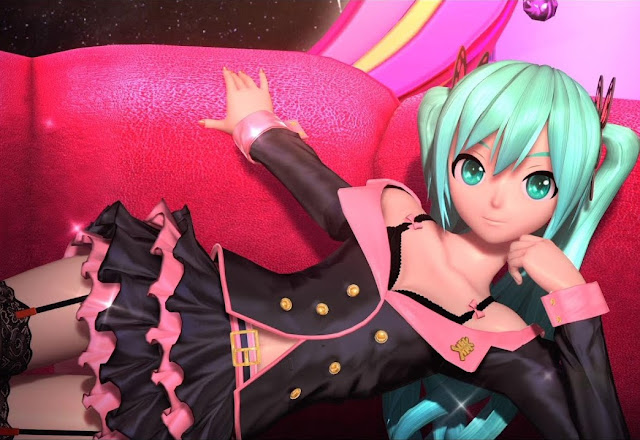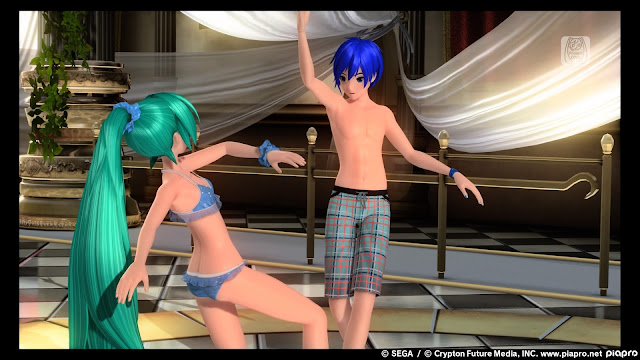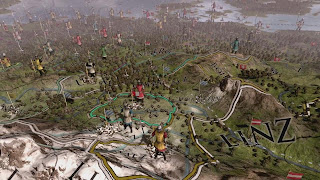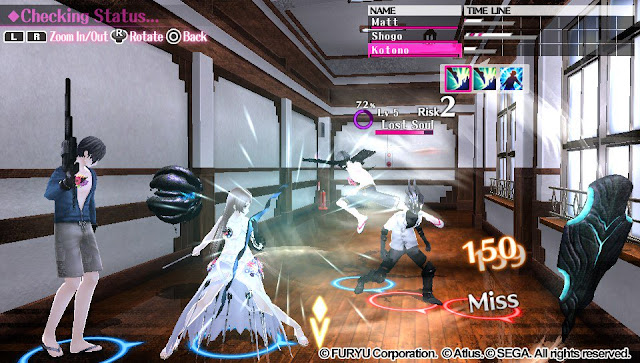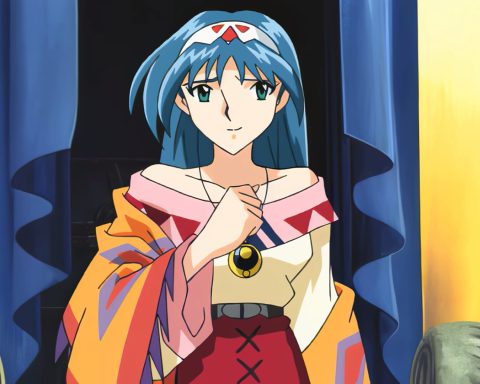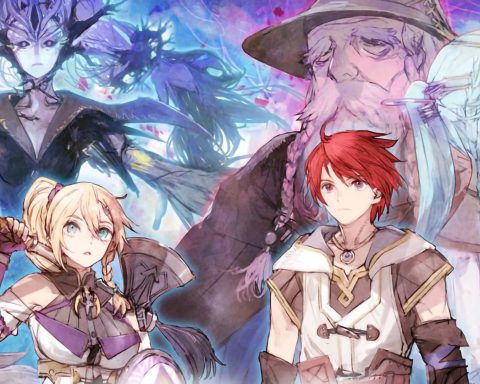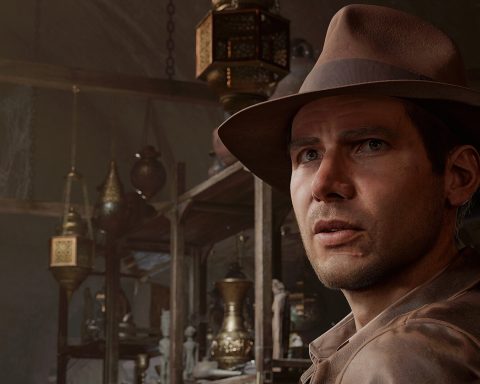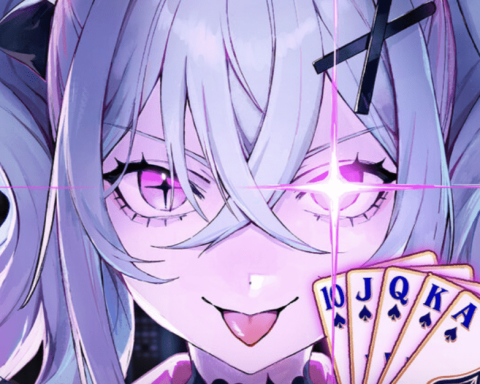List by Matt S.
It’s hard to believe, but today is the last day of the decade (HAPPY NEW YEAR!), and it should go without saying that a lot has happened in video games over that last ten years. Just think: at the start of the decade people were playing Nintendo Wii, PlayStation 3, Xbox 360, PSP and Nintendo DS. There’s been two new generations of consoles in that time, and one new Sony and Microsoft device.
In addition, in that time VR made a comeback, and streaming games has just started to get steam. DDNet started as a humble little blog right at the end of 2010, and it’s been fascinating to watch the site evolve and change as the industry.
To celebrate this huge transition, from one decade to the next, we’ve decided to get the team to share their most noteworthy games of the decade – the games that they found most memorable, or had the biggest impact on them. Today’s is the last in the series, as we look at the list of Editor-in-Chief, Matt S.
Technically this game did release in the last decade, in Japan, but as it only made its way into English in 2010, I’m counting it. Atelier Rorona was my first Atelier title, and it would grow to become my favourite JRPG series of all, thanks to its sheer wholesomeness and good-naturedness. Atelier titles are fundamentally happy, and that in turn makes me happy every time I play them, and this started right back with the first in the Arland series.
I actually discovered the series thanks to a poor review, too. IGN panned the game, with the critic writing “has all the bouncy physics, red zone comments, and “shy” girls that wear bras for shirts, but is missing that part where the game is compelling and fun.” Given that Rorona herself was incredibly cute, the promise of fan service helped me decide to give the game a spin anyway, and I realised quickly that I really loved it. Indeed, it was one of the main reasons I wanted to set up DDNet-it was games like this that I felt needed a voice out there that would look at them differently. So you could say that his has been a very influential game to me.
Samurai Warriors 3
Like Atelier Rorona, above, this is a game that was technically released in 2009, but only saw a western release in 2010. Like Atelier Rorona, it had a massive impact on me and my entire idea of video games. Thanks to Samurai Warriors 3 – which was my first Warriors game, ever – I developed a deep and abiding interest in Japanese history. Now, in my travels through the real Japan, I’ve been to two sites that hosted battles depicted in this series, visited over a dozen castles, and read dozens of books on Japanese history. Samurai Warriors 3 is, in a very real sense, proof that video games can inspire people to learn and enlighten themselves.
I almost didn’t play this one either. Where Atelier Rorona’s negative reviews encouraged me to take it on anyway, Samurai Warriors 3 was being chalked up as a “button masher” and I wouldn’t have given it a go if my editor (I was working at Gamepro at the time), hadn’t assigned it to me. Needless to say I now look at those same “button masher” criticisms that inevitably come with every new Warriors release and roll my eyes. Reviews are a subjective analysis of a game, but if all you see in a Warriors game is a “button masher”, you’re not playing it right, nor are you playing it for the right reasons.
Hatsune Miku: Project Diva Future Tone
Future Tone wasn’t my first Hatsune Miku title, but it was the one that cemented my deep and genuine love for the vocaloid and her crew. Miku gave me a whole new philosophy and field to study, as I started to look at the growth of the digital celebrity and how people’s responses to them is changing. I got published in Australia’s largest newspaper thanks to that new field of interest, and I swear, bit by bit, I am getting towards completing the writing of that book that I’ve been sitting on for years.
I’ve become really quite obsessed, but in a healthy way (I promise!). Miku fascinates me. She’s my main hobby now, but also something that I find endless ways to engage with on an intellectual level, and her star is still only on the rise. This one video game was the one that got me there, and as such I can’t think of a single release over the last decade that has had a greater impact on me.
Dead or Alive 5 is the game that took me from a very secondary fighting game fan, to a someone who truly loves the genre. Prior to Dead or Alive 5, I hadn’t bought a single fighting game since moving away from home, because to me they held little value beyond some button mashing fun with mates, and I don’t host many local multiplayer parties any more. Now, however, the intricacies of fighting games appeal to me, and while I’ll never go so far as to get into the competitive scene, I do find myself playing most fighters and getting a lot of value out of playing against the AI, or even online.
Dead or Alive 5 caught my interest in two principle ways: firstly it was an accessible fighting game and I could see myself getting better at as I played, where previously with fighters the complexities of the combat systems threw me right off from the outset. Secondly, it was the first fighting game to have a visual engine that was detailed enough that the fan service could be… genuine fan service. I’ll not for a second deny that Marie Rose in her Arabian harem costume wasn’t a hell of a hook for me (Marie Rose being new to Dead or Alive with 5… and let’s face it she’s reason #3).
Lightning Returns: Final Fantasy XIII
Lightning Returns must be the most disliked Final Fantasy of all, but its presence on this list is not just me being contrarian; this game had an enormous impact on me. I’ve always been in love with the Final Fantasy series, of course. The series has always been more than capable of throwing intelligent and meaningful stories at players as well. Lightning Returns upped all of that up all of the way, though, and I found it quite inspiring that the game was willing to be so inaccessible and obtuse in order to share what is an enormously complex story with players.
Sometimes complexity is necessary for engaging with difficult ideas. Lightning Returns is a mesh of existentialism, nihilism, determinism, and a host of other philosophies, and the game itself is a thesis in interactive form. It’s by no means for everyone as a result, and I’ve long said that the biggest problem this games faced was that it was a Final Fantasy game, and therefore meant to be for everyone. For me, though, as someone familiar enough with its themes to “get” it, Lightning Returns was a special kind of game that has had me thinking for years after first playing it.
Having always been a fan of serious strategy games (hello, Civilization!) it was difficult to narrow down to just one to include on this list, but in the end I just had to go with Europa Universalis IV which, in terms of raw hours played alone, was clearly the strategy game that hooked me in the most this decade.
Less focused on military campaigns than Civilization, Europa Universalis IV had its issues (the economic systems took me forever and a day to understand well enough to start to get strategic with), but it was so much closer to providing a real sensation of running an empire than anything that I have played before or after. Whether I was trying to resist colonialism as a small nation in Asia or the Americas, or trying to form one as one of the powerhouses of Europe and the Middle East, Europa Universalis’ take on a most dynamic and politically dramatic part of human history made it very difficult to put down. And, indeed, I play it to this day (though having Civilization VI on my PS4 and Nintendo Switch has now given me a more enjoyable outlet for my hardcore strategy game itch than turning on the PC).
NieR
On one level, NieR has been superseded by its successor. NieR Automata is a far more proficient effort, thanks to the backing of PlatinumGames and that company’s ability to do amazing things with action systems.
So while I do think that NieR: Automata is the best game ever created, NieR original is the one on my list, and it’s here for a very simple reason: it was the foundation. Before NieR there weren’t many games (if any) that went out of their way to subvert the very creation of games. No game creators were using their games to turn the lens inwards and look at how these things are structured, and how the abstraction necessary to make games work can affect how a game can function as art. NieR is a deeply introverted, highly experimental little game, and backs its smarts up with a deeply entertaining story that alternates between downright hilarity, and surprising emotional nuance. Without NieR there would be no NieR: Automata, and that has more to do with Yoko Taro making a mission statement with NieR than it does one being the sequel to the other.
Firstly: I fully acknowledge and respect that without Demon’s Souls and Dark Souls there would be no Nioh. FromSoftware’s seminal two titles have been more responsible for the creation of an entire genre than anything else that has come around over the last decade.
However, Nioh’s the one that’s on this list because, while I loved the Souls titles, Nioh was the first one in this style that I truly cared about. Rooted, however loosely, in real Japanese history, and supported by real Japanese mythology, Nioh had context that Dark Souls’ fantasy gothic setting lacked. Giving Nioh a named protagonist was a good idea, too – William Adams, the “white samurai” instantly became a personality of great interest to me, and I’ve since read books of his history, and even visited his grave site on a trip to Japan one year.
I always had my suspicions that The Caligula Effect was a game that someone truly intelligent created. Many dismissed it as a “cheap Persona clone”, but I got a sense immediately that it was something much more, given that it was dealing with people that had collectively created a “dream” world and fabricated universe that allowed them to “escape” the real world. In the context of what’s happening in Japanese culture, that struck me as poignant.
Then I got to interview the director one year at TGS, and he confirmed that my hunch was right – the game was a work of genius. The Caligula Effect is perhaps the best example of just how disinterested the mainstream games community is with anything remotely smart. Where Persona 5 was a poor imitation of its predecessor (but pretty and “fun” to play), The Caligula Effect was deeply intelligent, innovative, and different. Unfortunately it wasn’t a refined as Persona. So guess which one ended up with all the plaudits?
Danganronpa: Trigger Happy Havoc
Danganronpa wasn’t my first visual novel, but looking back, it was the one that made me realise that this is one of my favourite genres. And now I write my own. More than that, though, Danganronpa appealed to me on so many levels. It blended smart philosophy with the sharpest, darkest humour I’d ever seen in a Japanese game. It was also cast beautifully, and getting the voice of Doraemon, Japan’s wholesome blue robot cat, to voice the psychotic Monokuma, was inspired and culturally-relevant casting in a way that still makes me chuckle thinking about it.
Trigger Happy Havoc had a brilliant cast in general, and was backed with a striking, vibrant art style that is more appealing to my eyes than any of these “realistic” open world blockbusters that cost 1000 times as much to create. It also has some great fan service, and we all know how much I enjoy that. Seriously, though, Danganronpa is a game I will forever have time for… I just wish that a triple pack of the three main games could get a release onto the Nintendo Switch now, because I’ve retired my PlayStation Vita, but these games are so much better suited to the handheld experience.
– Matt S.
Editor-in-Chief
Find me on Twitter: @digitallydownld

